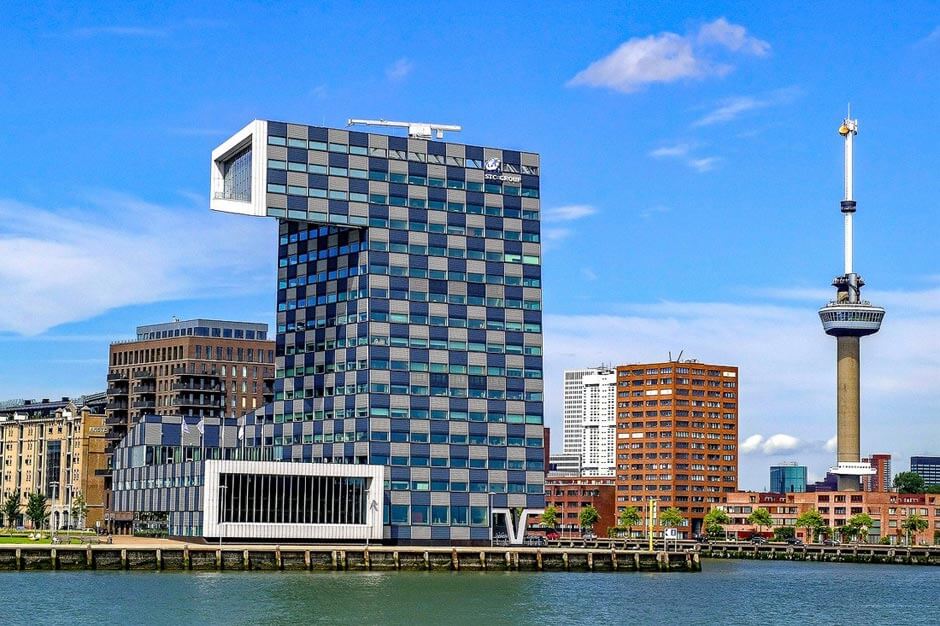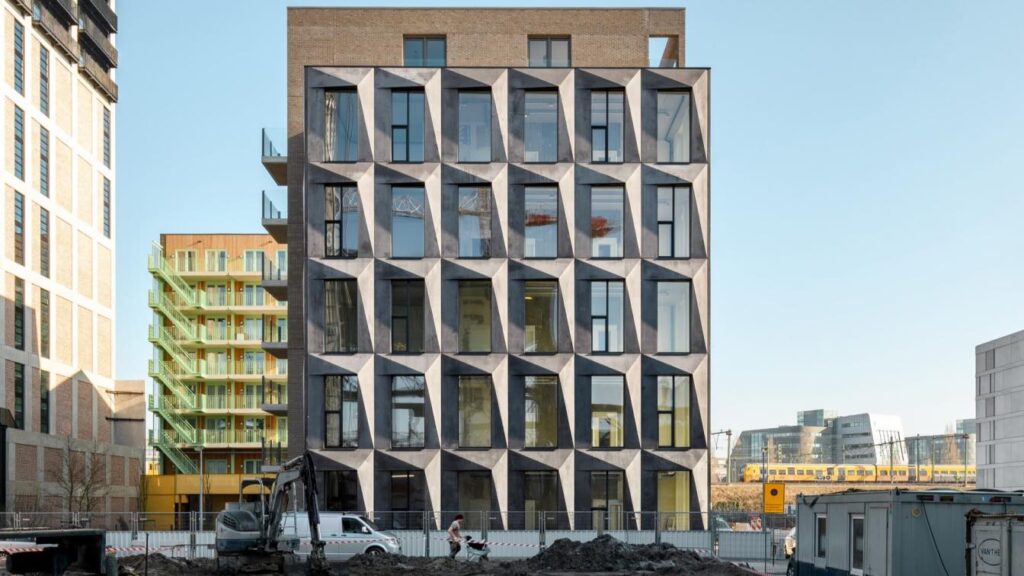We have a team of professionals to help you with all your business needs. So, that you can focus on business expansion in Netherlands.
Please feel free to email us on [email protected]
Netherlands
Why Netherlands?
Located in northwestern Europe, Netherlands is also known as Holland. The Netherlands has a strong connection through waters whereas over 450 kilometers of coastline bordering the North Sea and 26% of the country lies below sea level. Positioned strategically, the country offers access to the major markets of the region, including Europe, Africa, and the Middle East. The sale of natural gas has been the main source of revenues of the Netherlands for decades. Amsterdam, “the capital city of Netherlands” is ranked number five in DHL’s hitlist of Globalization Hotspots in the cities with the most intense international flows. As per Economic Complexity Index (ECI), the Netherlands is the seventh largest export economy in the world and the fifteenth most complex economy.
Advantages
The Netherlands is a founding member of the International Bank for Reconstruction and Development — the World Bank — and was one of the first countries to receive a World Bank loan after the Second World War. These initial loans helped to rebuild the economy, modernize and expand the Royal Dutch Airlines fleet, and replenish the working capital of the Dutch Reconstruction Bank (Herstelbank). Today, the Netherlands is a member of all five institutions that form the World Bank Group. The Netherlands and the World Bank work with other member governments to finance projects, design policies, and deliver programs to eradicate poverty in the developing world. Netherlands offers following benefits to potential investors and expansion focused business owners.
Strategic location
Being one of the world’s most advanced economies, the country combines first rate infrastructure with a strategically advantageous position in mainland Europe. As per Forbes ranking, the country ranked number four among Best Countries of Business in the World. Due to its strategic location, the country is recognized as the most favorable for European, Asian and American companies that want to expand their businesses worldwide.
Competitive tax rates
The Netherlands has competitive tax rates and pro business policies. Its taxation policy is more favorable for foreign direct investments. The country also actively promotes R&D activities through a favorable corporate tax structure and specific R&D tax incentives to stimulate innovation.
Innovation
The forward thinking approach of the Netherlands’ government acts as a proponent of public private partnership and technological innovation, allows necessary support to foreign entities to expand and innovate in the region.
Large talent pool
The Netherlands’ workforce is highly educated, skilled and multilingual, which offers companies an attractive pool of labor. Being Europe’s one of the great cultural centers, the Netherlands is an appealing and favorite place for workers live.
Strong financial center
Traditionally, the Netherlands has been a desirable place for major financial institutions. However, a strong financial sector plays a major part in the Dutch economy. The country’s Ministry of Finance has worked to make the Netherlands a world financial center, and modern legislation exists for financial oversight. The Netherlands invests large amounts of money in various sectors of the economy such as medicine, education, new technologies, ecology, mechanization of agriculture and others.
Simple Tax Regime
Netherlands residents are liable to pay taxes on their worldwide income, whereas non residents are subject to tax only on income derived from specific sources in the Netherlands such as; income from employment, director’s fees, business income, and income from Dutch immovable property.
Personal Income Taxes
In Netherlands, the worldwide income of individual is divided into three different types of taxable income, and each income type is taxed separately under its own schedule, referred to as a ‘box’. However, each box has its own tax rate(s). An individual’s income is liable to tax on the basis of aggregate income in these three boxes.
Box 1 refers to taxable income from work and home ownership, and includes the following:
- Employment income;
- Home ownership of a principal residence (deemed income);
- Periodic receipts and payments; and
- Benefits relating to income provisions.
Box 2 is refers to taxable income from a substantial interest, and the income is liable to taxed at a flat rate of 26.9%.
Box 3 income is liable to taxed at a flat rate of 31%.
Corporate income taxes (CIT)
Generally, a Dutch resident company is liable to Corporate Income Tax on its worldwide income. However, certain income can be exempted from the tax base. Non resident entities have limited tax liability with regard to income from Dutch sources.
Standard corporate income tax (CIT) rate
Currently, the standard corporate tax rate stands at 25%. There are two taxable income brackets. A lower tax rate of 15%, is applied to the first income bracket.
Netherlands Companies
The type of company you choose will impact everything to do with how your business is set up, how you pay taxes, and how you can make money. And if you’re a freelancer or self employed, you still need a company. Generally, Netherland offers below mentioned business entities:
General partnership
This type of business structure is formed with one or more partners. It is advisable to all partners to sign an agreement and put down in writing what all business partners have agreed upon. All the partners are called as self employed entrepreneurs, and are liable for business and financial obligations individually.
Limited partnership
This type of business is structured with one or more general partners and one or more limited partners. They tend to be financial investors and do not need to register with the Chamber of Commerce, whereas the general partners are active in the day to day operations and decisions of the business.
Private company with limited liability
A Private company with limited liability is classed as a legal entity, whereby limiting the risks to the owner(s), and must be registered with the Chamber of Commerce. This type of business entity itself seen as the entrepreneur, whereas the person who is appointed director merely acts on behalf of the company and cannot be held personally liable for their acts.
Professional partnership
Under Dutch Law, the partnership is referred as maatschap, different from the general partnership and the limited partnership and this form of cooperation generally preferred by professionals rather than a corporation established for the purpose of doing business.
Sole trader
In this form of business, there is one fully independent founder and owner, although the business may employ personnel. In this type of business, the obligations apply to sole traders, and may also apply to spouses. However, no distinction is made between private and business property. Therefore, business creditors can seek recovery from the owner’s private property and private creditors from the business property.

Amsterdam, “the capital city of Netherlands” is ranked number five in DHL’s hitlist of Globalization Hotspots in the cities with the most intense international flows. As per Economic Complexity Index (ECI), the Netherlands is the seventh largest export economy in the world and the fifteenth most complex economy.
Author: Chandrawat & Partners
Topic: Doing Business in Netherlands
Download our comprehensive guide on – Doing Business in Netherlands
Contact Us
Get in touch with the right people to get the right help in setting up your business in Netherlands.
Contact us at: [email protected]
Netherlands
We have a team of professionals to help you with all your business needs. So, that you can focus on business expansion in Netherlands.
WHY NETHERLANDS?
Located in northwestern Europe, Netherlands is also known as Holland. The Netherlands has a strong connection through waters whereas over 450 kilometers of coastline bordering the North Sea and 26% of the country lies below sea level. Positioned strategically, the country offers access to the major markets of the region, including Europe, Africa, and the Middle East. The sale of natural gas has been the main source of revenues of the Netherlands for decades. Amsterdam, “the capital city of Netherlands” is ranked number five in DHL’s hitlist of Globalization Hotspots in the cities with the most intense international flows. As per Economic Complexity Index (ECI), the Netherlands is the seventh largest export economy in the world and the fifteenth most complex economy.

ADVANTAGES
The Netherlands is a founding member of the International Bank for Reconstruction and Development — the World Bank — and was one of the first countries to receive a World Bank loan after the Second World War. These initial loans helped to rebuild the economy, modernize and expand the Royal Dutch Airlines fleet, and replenish the working capital of the Dutch Reconstruction Bank (Herstelbank). Today, the Netherlands is a member of all five institutions that form the World Bank Group. The Netherlands and the World Bank work with other member governments to finance projects, design policies, and deliver programs to eradicate poverty in the developing world. Netherlands offers following benefits to potential investors and expansion focused business owners.
Strategic location
Being one of the world’s most advanced economies, the country combines first rate infrastructure with a strategically advantageous position in mainland Europe. As per Forbes ranking, the country ranked number four among Best Countries of Business in the World. Due to its strategic location, the country is recognized as the most favorable for European, Asian and American companies that want to expand their businesses worldwide.
Competitive tax rates
The Netherlands has competitive tax rates and pro business policies. Its taxation policy is more favorable for foreign direct investments. The country also actively promotes R&D activities through a favorable corporate tax structure and specific R&D tax incentives to stimulate innovation.
Innovation
The forward thinking approach of the Netherlands’ government acts as a proponent of public private partnership and technological innovation, allows necessary support to foreign entities to expand and innovate in the region.
Large talent pool
The Netherlands’ workforce is highly educated, skilled and multilingual, which offers companies an attractive pool of labor. Being Europe’s one of the great cultural centers, the Netherlands is an appealing and favorite place for workers live.
Strong financial center
Traditionally, the Netherlands has been a desirable place for major financial institutions. However, a strong financial sector plays a major part in the Dutch economy. The country’s Ministry of Finance has worked to make the Netherlands a world financial center, and modern legislation exists for financial oversight. The Netherlands invests large amounts of money in various sectors of the economy such as medicine, education, new technologies, ecology, mechanization of agriculture and others.
SIMPLE TAX REGIME
Netherlands residents are liable to pay taxes on their worldwide income, whereas non residents are subject to tax only on income derived from specific sources in the Netherlands such as; income from employment, director’s fees, business income, and income from Dutch immovable property.

Personal Income Taxes
In Netherlands, the worldwide income of individual is divided into three different types of taxable income, and each income type is taxed separately under its own schedule, referred to as a ‘box’. However, each box has its own tax rate(s). An individual’s income is liable to tax on the basis of aggregate income in these three boxes.
Box 1 refers to taxable income from work and home ownership, and includes the following:
- Employment income;
- Home ownership of a principal residence (deemed income);
- Periodic receipts and payments; and
- Benefits relating to income provisions.
Box 2 is refers to taxable income from a substantial interest, and the income is liable to taxed at a flat rate of 26.9%.
Box 3 income is liable to taxed at a flat rate of 31%.
Corporate income taxes (CIT)
Generally, a Dutch resident company is liable to Corporate Income Tax on its worldwide income. However, certain income can be exempted from the tax base. Non resident entities have limited tax liability with regard to income from Dutch sources.
Standard corporate income tax (CIT) rate
Currently, the standard corporate tax rate stands at 25%. There are two taxable income brackets. A lower tax rate of 15%, is applied to the first income bracket.
NETHERLANDS COMPANIES
The type of company you choose will impact everything to do with how your business is set up, how you pay taxes, and how you can make money. And if you’re a freelancer or self employed, you still need a company. Generally, Netherland offers below mentioned business entities:
General partnership
This type of business structure is formed with one or more partners. It is advisable to all partners to sign an agreement and put down in writing what all business partners have agreed upon. All the partners are called as self employed entrepreneurs, and are liable for business and financial obligations individually.
Limited partnership

This type of business is structured with one or more general partners and one or more limited partners. They tend to be financial investors and do not need to register with the Chamber of Commerce, whereas the general partners are active in the day to day operations and decisions of the business.
Private company with limited liability
A Private company with limited liability is classed as a legal entity, whereby limiting the risks to the owner(s), and must be registered with the Chamber of Commerce. This type of business entity itself seen as the entrepreneur, whereas the person who is appointed director merely acts on behalf of the company and cannot be held personally liable for their acts.

Professional partnership
Under Dutch Law, the partnership is referred as maatschap, different from the general partnership and the limited partnership and this form of cooperation generally preferred by professionals rather than a corporation established for the purpose of doing business.
Sole trader
In this form of business, there is one fully independent founder and owner, although the business may employ personnel. In this type of business, the obligations apply to sole traders, and may also apply to spouses. However, no distinction is made between private and business property. Therefore, business creditors can seek recovery from the owner’s private property and private creditors from the business property.


